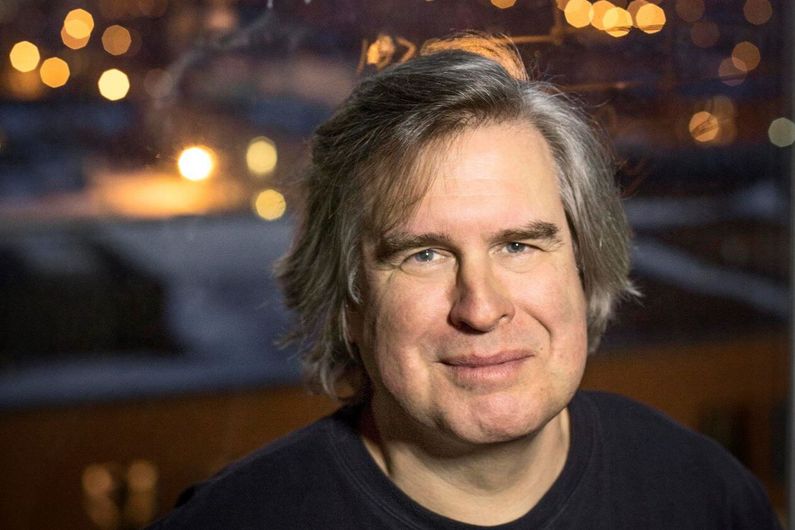Gilles Brassard named an international member of the U.S. National Academy of Sciences
- UdeMNouvelles
05/13/2021
- Martin LaSalle
A professor in UdeM’s Department of Computer Science and Operations Research, Canada’s ‘father of quantum computing’ was elected April 26 to the prestigious non-governmental organization.
Recognized as the father of quantum computing in Canada and one of the international founders of this discipline, Université de Montréal professor Gilles Brassard was elected April 26 as an international member of the U.S. National Academy of Sciences (NAS).
He is the first UdeM professor ever to be admitted to the prestigious organization.
Created in 1863 through an Act of Congress signed by President Abraham Lincoln, the NAS now has 2,461 American members and 511 international members. This year, besides Brassard, only one other Canadian was admitted: University of Toronto medical professor Daniel J. Drucker.
The NAS is a private, non-governmental institution charged with advising the U.S. government on matters related to science and technology. Its members are elected in recognition of their outstanding contributions to research, and membership is considered one of the highest honours a scientist can receive.
Gilles Brassard was nominated by NAS member Anthony James Leggett, winner of the 2003 Nobel Prize in physics, best-known as a pioneer of quantum cryptography and quantum teleportation, keystones of the discipline.
Well met in the waves
Brassard has enjoyed a longtime collaboration with physicist and cryptologist Charles H. Bennett, an NAS member since 1997. The story of how they first met is an unusual one.
“In 1979, I was attending a theoretical computer-science conference in Puerto Rico and in between lectures I went to the beach,” Brassard recalled.
“I was in the water when a stranger swam up to me and, for no apparent reason, told me that he knew how to create banknotes that could not be counterfeited using quantum theory. It was Charles Bennett!
"What's special is that on the plane to Puerto Rico, I had read an article by Bennett, whom I’d never heard of before. But he knew that I was going to give a lecture on cryptography two days later, so that’s why he came to talk to me.”
Thanks to Bennett's contribution to his research, Brassard was able in 1983 to use quantum mechanics to develop his theories of quantum cryptography. With Bennett and four other researchers including Quebec's Claude Crépeau, in 1992 invented the theoretical protocol of quantum teleportation, which was realized experimentally by other researchers years later.
A child prodigy, Brassard entered UdeM at the age of 13 and went on to complete a bachelor's degree and then a master's degree in computer science, followed by a doctorate in theoretical computer science from Cornell University in 1979. He returned to his alma mater that year to become an assistant professor at age 24 and was promoted to full professor at age 33.
A career filled with prizes
The quantum physicist has won many prizes in the course of his long career: the Rank Prize, the Wolf Prize in physics (of which he was the first Canadian recipient), the Micius Quantum Prize and the BBVA Foundation's Frontiers of Knowledge Award.
He is also a foreign member of the Latvian Academy of Sciences and the Académia Europeae, and one of the few French-speaking Quebec Fellows of the Royal Society of London, where he signed the same book as Isaac Newton, Charles Darwin and many other eminent scientists.
In Canada, he has received the Killam Prize, the Gerhard Herzberg Gold Medal from NSERC, the Prix Marie-Victorin (Prix du Québec) and the Prix Urgel-Archambault (Acfas). He is a Fellow of the Royal Society of Canada and an Officer of the Order of Canada and the Ordre national du Québec.
And last December, Brassard was named the inaugural holder of the QuSoft Turing Chair for Quantum Software at the Centrum voor Wiskunde en Informatica, in Amsterdam.
But one honour has eluded him so far: the Nobel Prize. Could it be next?
“The nomination process is very complex and it is in the Nobel tradition not to inform the nominees: the list of nominees remains secret for 50 years, except for the winners of course – we'll see in October,” said Brassard.
Of the 26 winners of the Wolf Prize in physics from 1978 to 2010, 14 have gone on to win the Nobel Prize.













